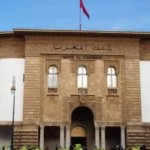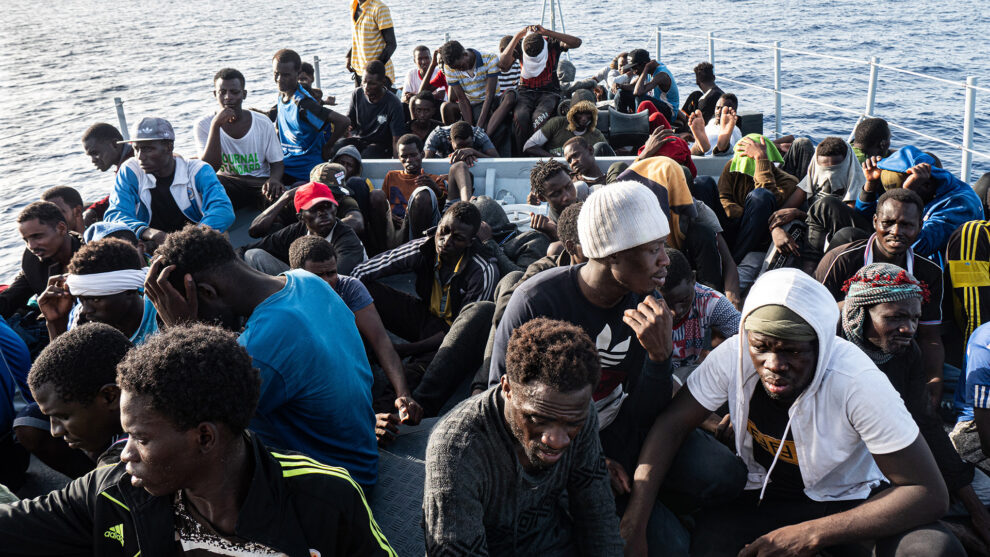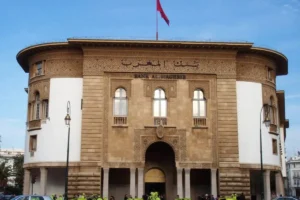Migration is a famously sensitive issue for EU governments and commentators. With discussions still ongoing on the new Pact, debates continue to rage, as Benjamin and I have reported many times in this newsletter.
One topic that trumps migration in sensitivity is Israel and Palestine, as a colleague remarked to me while walking in the European Parliament some weeks ago.
Yet the two are not standalone issues: Increased instability (a war, humanitarian crises, climate disasters…) in third countries, inevitably leads to changes in migratory flows.
In our times, there are some specific categories of people for whom freedom of movement is denied – people who cannot get documents, stateless persons or others with “weak” citizenship. These people are called migrants, while those who travel freely in the Schengen area with strong EU passports are ‘expats’.
For those seeking to escape from death in the Gaza strip, which has been under Israeli airstrikes for over two weeks now in retaliation to Hamas’ attacks on 7 October, Egypt is one potential destination.
In a letter to member states before today’s European Council, Ursula von der Leyen said that the EU’s priorities on migration “should also be to establish a strategic and mutually beneficial partnership with Egypt”.
According to the Commission President, “Egypt’s role is vital for the security and stability of the Middle East, it hosts growing numbers of refugees, and we have a responsibility to support it,” said von der Leyen.
However, such deals are not straightforward. Egyptian President Abdel Fattah Al-Sisi is experiencing an internal crisis, with a country economically on the brink of collapse. Tunisian President Kais Saied was in a similar situation, before starting a propaganda campaign of distraction against sub-Saharan migrants, and a tug-of-war with Europe.
Even before the latest atrocities in Israel and Palestine, the European Commission said multiple times that negotiations were ongoing to deepen relations with Egypt, with the EU-Tunisia deal as a template.
The trouble is that the EU-Tunisia deal is perhaps not as solid as Brussels had thought, with Saied wielding much power over the EU with migration policy.
Europe must be careful not to boost the legitimacy of dictators’ regimes through diplomatic relations.
In March 2020, von der Leyen praised Greece as the “shield of Europe” when dealing with the migration crisis, containing arrivals. In 2023, a new shield exists – though this one is led by dictators in North Africa who are not afraid to use people for geopolitical purposes.
These are the shields of Les Misérables.
Who’s Electioneering?
Ukraine is supposed to have elections in October, according to the country’s official calendar. President Volodymyr Zelenskyy pushed for elections to be held with US and EU help in a statement last August, despite the war that has been ongoing since February 2022.
However, since Ukraine is at war, any elections should be suspended, according to the country’s rules. Zelenskyy has not referred to the elections in his recent statements.
In September, former Ukrainian Prime Minister Yulia Tymoshenko told Euractiv in an exclusive interview that “it is not only unacceptable but also immoral and anti-Ukrainian,” to hold elections in times of war. According to her, there are too many limits to holding a democratic election while the country is at war.
Capitals-in-brief
Berlin moves ahead with fast-tracking deportations. A controversial bill to accelerate the deportation of rejected asylum seekers was agreed upon by the German government on Tuesday (24 October), with members of the coalition speaking out against the move.
Tusk to discuss unblocking EU funds for Poland. Opposition leader and potential future prime minister Donald Tusk set off to Brussels to discuss the chance to unlock the nation’s EU recovery money, which was frozen due to the rule of law concerns in Poland.
Social media ‘unresponsive’ to disinformation requests ahead of Slovak election: report. Requests by the Slovak authorities for Meta to remove misleading and deceptive content ahead of elections at the end of September were met with an inadequate and ineffective response, according to a report on disinformation, which also calls for an EU-wide solution to force Telegram to comply with similar requests, published by the Interior Ministry’s Centre for Combating Hybrid Threats.
Fico to meet with leaders at EUCO. Slovak Prime Minister Robert Fico’s government was formed just in time for him to attend the European Council summit, which will focus on the unfolding situation in the Middle East, on which he refuses to ‘tolerate plans to raze Gaza to the ground’, the war in Ukraine and migration.
LGBTQI activists in Bulgaria win harassment lawsuit against nationalist party. Bulgaria’s nationalist VMRO was found to have harassed the LGBTQI community in one of its Facebook statuses, with an administrative court ruling condemning the act of discrimination based on sexual orientation.
Inside the institutions
Von der Leyen responds to EU staff letter on Israel stance. EU Commission President Ursula von der Leyen has defended herself against accusations of bias by stressing that the EU was working for the safety of civilians “of all faiths and nationalities”, according to an internal memo seen by Euractiv.
EU Parliament seeks a say in selecting Commission president after elections. The European Parliament wants to be engaged in negotiations with national leaders in choosing the European Commission president after EU elections, according to a draft report the Committee on Constitutional Affairs (AFCO) voted on Wednesday (25 October).
New convention to change the treaties? MEPs have called for a major reform of the EU treaties in a report approved on Wednesday (25 October), that would scrap a series of national vetoes and make the bloc’s executive arm, the European Commission, more overtly political.
The proposal will be also discussed and then voted by MEPs during the November plenary session and by the Council.
Among EU ministers, only a simple majority is needed to open a so-called convention, where national and EU policymakers would gather to work on the changes of the treaties.
EU Court of Justice shall be the only body to interpret and set EU laws scope. EU lawmakers in the European Parliament reaffirmed the principle of the “primacy of EU law” in a vote on Tuesday (24 October) in the Constitutional Affairs committee (AFCO).
According to them, the principle has to be more explicitly stated in EU treaties, and the EU Court of Justice must be the only interpreter of EU laws. MEPs felt the political need to reaffirm such a principle, because it has been challenged on more than one occasion.
Challenging the principle of EU legal supremacy was at the heart of the ‘Leave’ campaign’s arguments ahead of the UK Brexit referendum in 2016. Before the war in Ukraine, Polish Prime Minister Mateusz Morawiecki told MEPs during a hearing at the European Parliament in Strasbourg in September 2021 that national laws have to be considered superior to the EU Court of Justice.
Terry Reintke is the European Greens party lead candidate for EU elections. The co-President of the Greens/EFA group in the European Parliament Terry Reintke will run for European elections as the EU Greens party leading candidate, or the so-called spitzenkandidat, the co-president announced on X (ex-Twitter) on Wednesday (25 October).
The spitzenkandidat refers to the person that not only represents the party in the EU electoral campaign, but is also the party’s candidate for the presidency of the European Commission.
Euractiv interviewed Reintke before the summer break about the EU elections, you can find the video here.
EU policymakers enter the last mile on the Artificial Intelligence rulebook. The world’s first comprehensive AI law is entering what might be its last weeks of intense negotiations.
However, EU institutions have still to hash out their approach to the most powerful ‘foundation’ models and the provisions in the law enforcement areas.
Lawmakers agree stance on contested EU packaging law. Lawmakers in the European Parliament’s environment committee voted on Tuesday (24 October) their position on a new law to tackle packaging waste in Europe as discussions become increasingly fraught.
Source: EuraCtiv
















